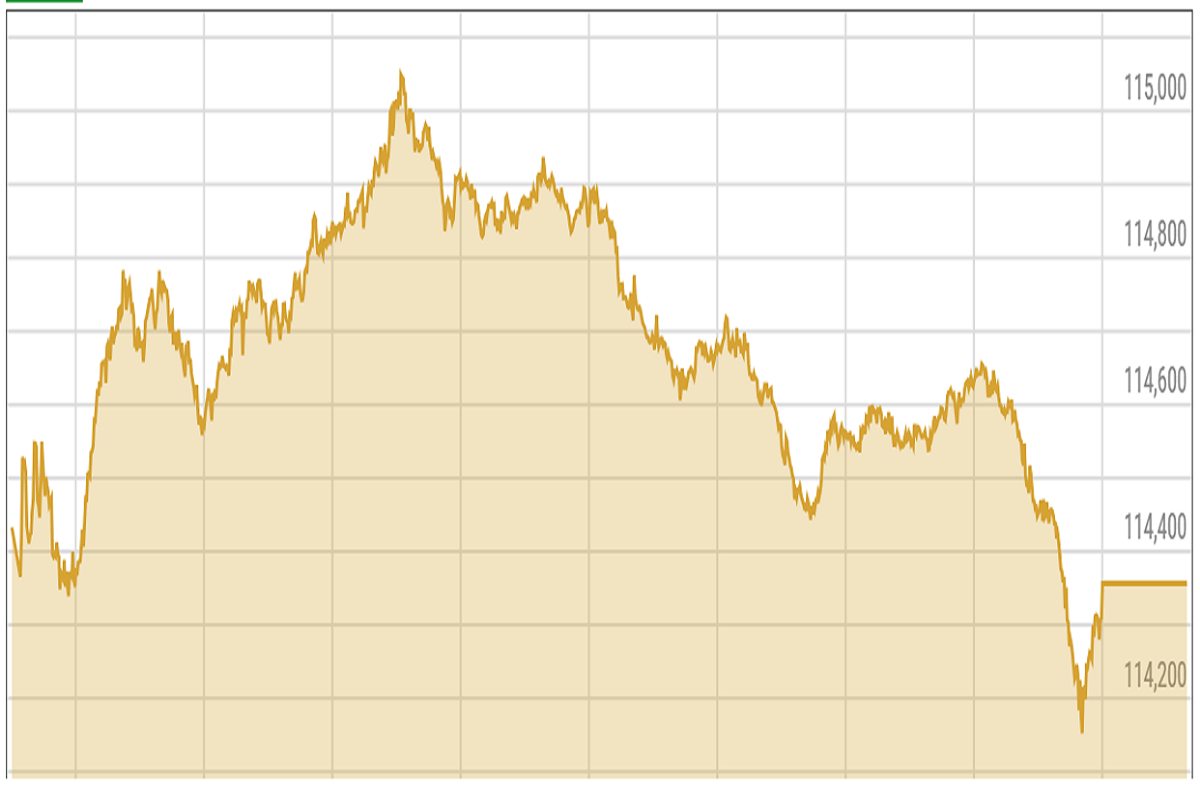Pakistan stocks end lower as rupee hits year low amid payment pressures
Investors grapple with market volatility ahead of monetary policy announcement
Business Desk
The Business Desk tracks economic trends, market movements, and business developments, offering analysis of both local and global financial news.

KSE-100 index shed 0.04%
PSX
Pakistan's stock market closed slightly lower Friday as investor sentiment remained dampened by the declining rupee, which sank to a year low under the strain of import payments, analysts said.
The rupee has been under continued pressure due to higher imports and shrinking export figures, market experts noted.
The benchmark KSE-100 index experienced a volatile trading session, with swings between a high of 650 points and a low of 246 points, according to analysts at Topline Securities.
"The market's performance was largely shaped by uncertainty over monetary policy and concerns about circular debt," one analyst said.
An analyst at Al Habib Capital said the market started on a positive note, driven by expectations of the IMF review approval, a potential policy rate cut, and a drop in SPI numbers.
“However, the optimism was short-lived, as selling pressure dragged the market into negative territory. Investor confidence took a hit amid uncertainty over the IMF’s approval of the borrowing plan to address the circular debt issue.”
An analyst at Arif Habib Limited observed that the market began the week on a flat note ahead of the anticipated monetary policy statement.
Key players such as Oil & Gas Development Company, Pakistan Petroleum, and Pakistan State Oil weighed heavily on the index, the analyst added.
KSE-100 index shed 0.04% or 42.36 points to close at 114,330.10 points.
US dollar steadied against PKR in the inter-bank market. Pakistani currency lost 10 paisas to close at 280.07. In the open market USD was trading at PKR 281.6.
At the end of the trading session, PKR depreciated by 0.04% DoD against the greenback to settle at 280.07 whereas, it has depreciated by 0.54% CYTD and depreciated by 0.62% FYTD.
Indian Stocks
Indian equity markets experienced a turbulent trading session on Monday, with benchmark indices reversing early gains and closing in the red.
The late sell-off was driven by weak signals from US stock futures, where Dow Jones futures dropped 400 points and Nasdaq futures fell over 1% due to uncertainties surrounding Trump-era tariffs.
BSE-100 index shed 254.41 points or 1.07% to close at 23,528.90 points.
The Dubai Financial Market (DFM) General Index shed 1.31% or 68.23 points to close at 5,154.39 points.
Commodities
Oil prices remained stable on Monday as concerns over US import tariffs, global economic growth, and rising OPEC+ output dampened risk appetite. WTI recorded its seventh consecutive weekly loss, the longest since November 2023, while Brent fell for the third straight week.
US President Donald Trump's trade policies have disrupted global markets, with tariffs imposed and delayed on major oil suppliers Canada and Mexico, as well as increased duties on Chinese goods. In response, China and Canada have introduced their own tariffs.
Brent crude prices gained 0.28% to $70.56 per barrel.
Gold prices dropped below $2,900 on Monday, nearing the lower end of their weekly range. A slight recovery in the US Dollar, despite weaker US jobs data, weighed on gold. However, expectations of Federal Reserve rate cuts, falling US bond yields, and concerns over trade tariffs may provide support and limit gold's losses.
International gold prices declined 0.11% reaching $2,905.63 per ounce.










Comments
See what people are discussing